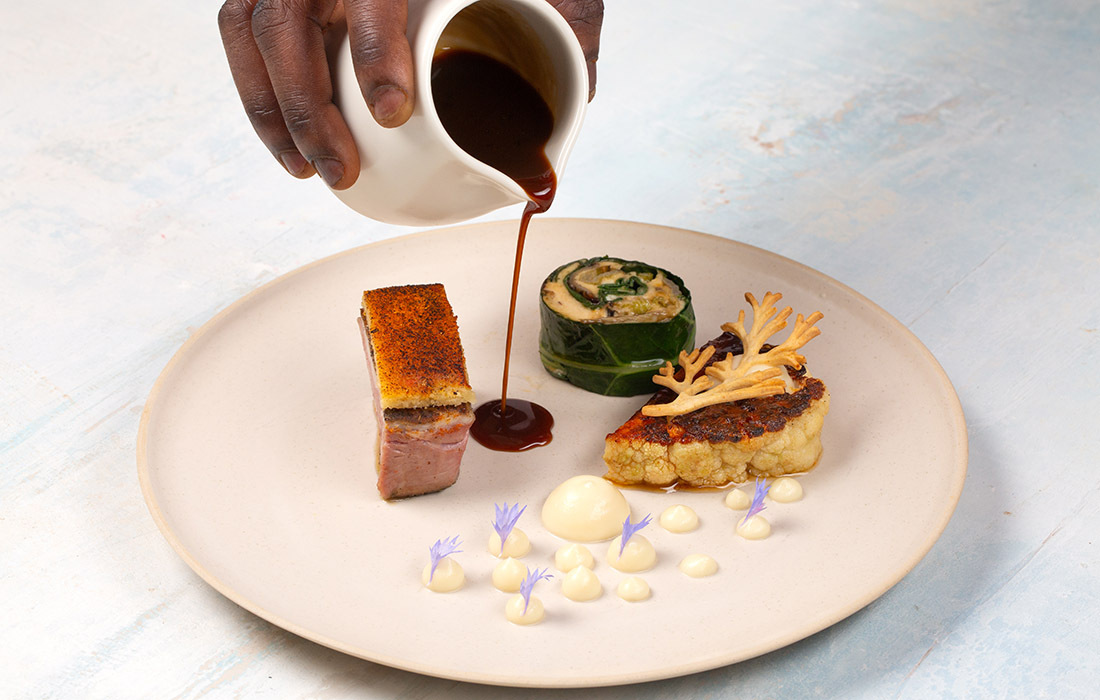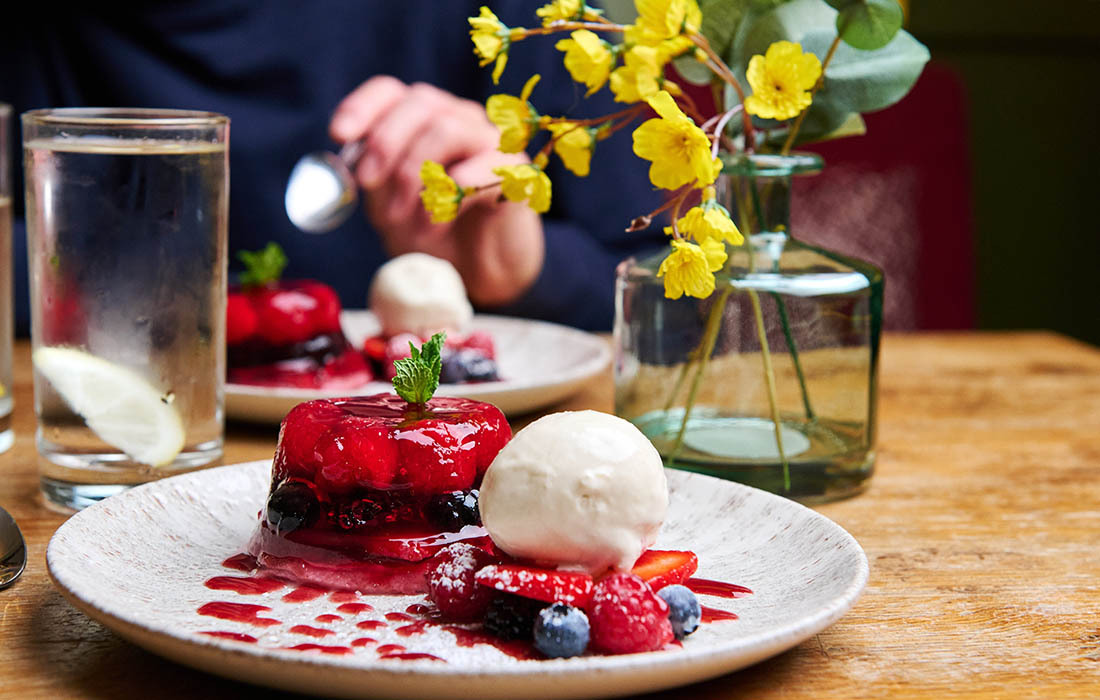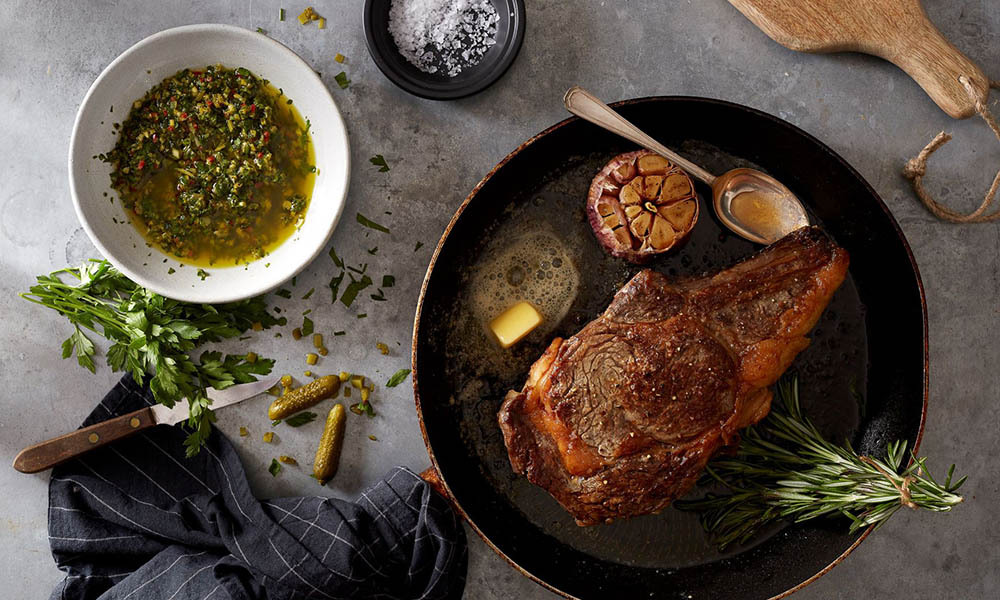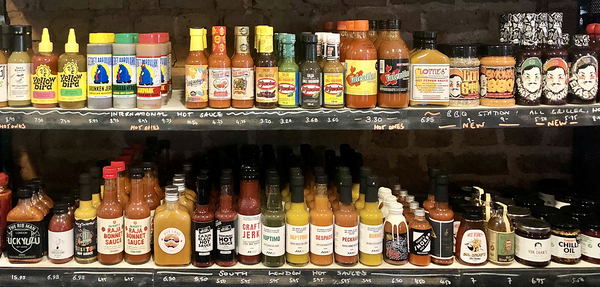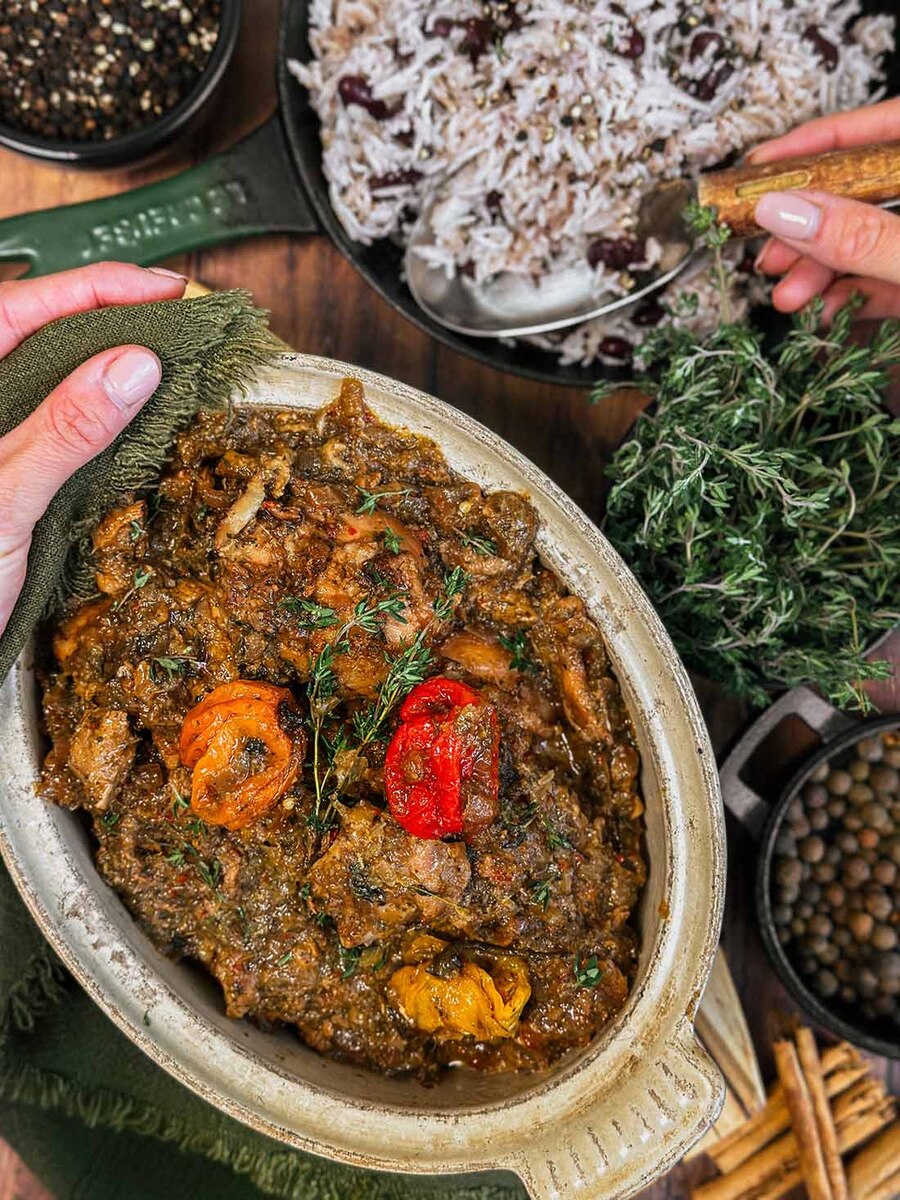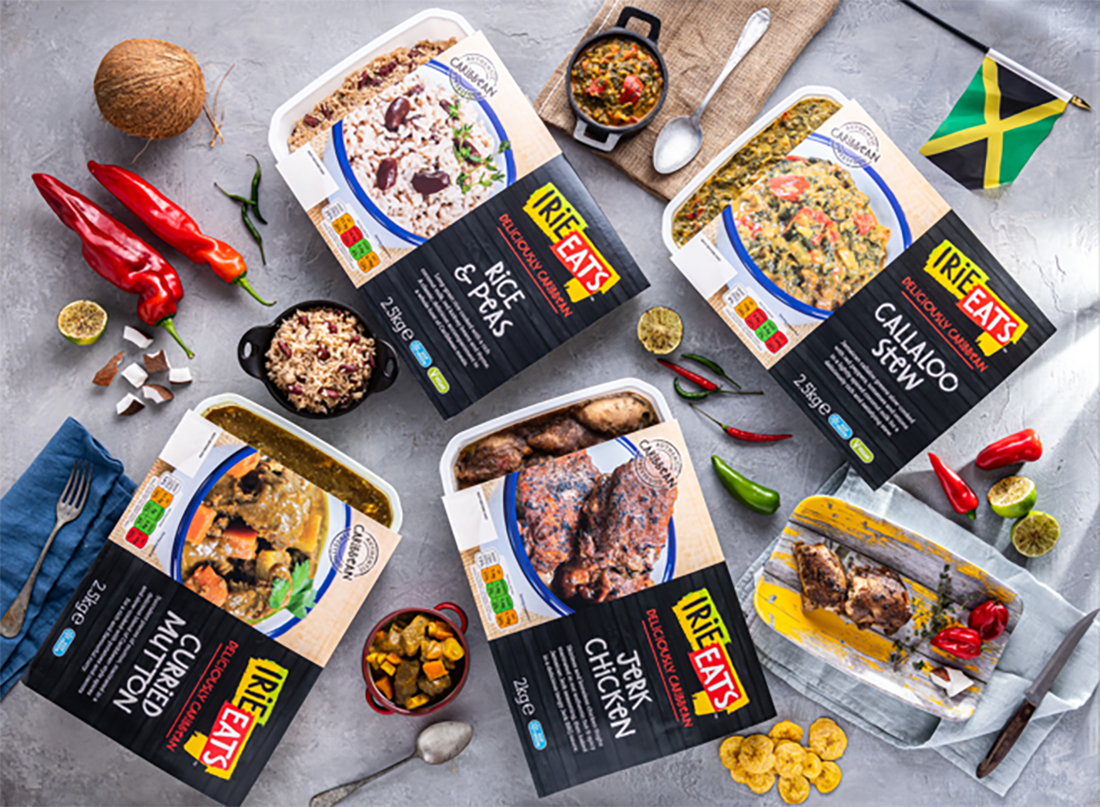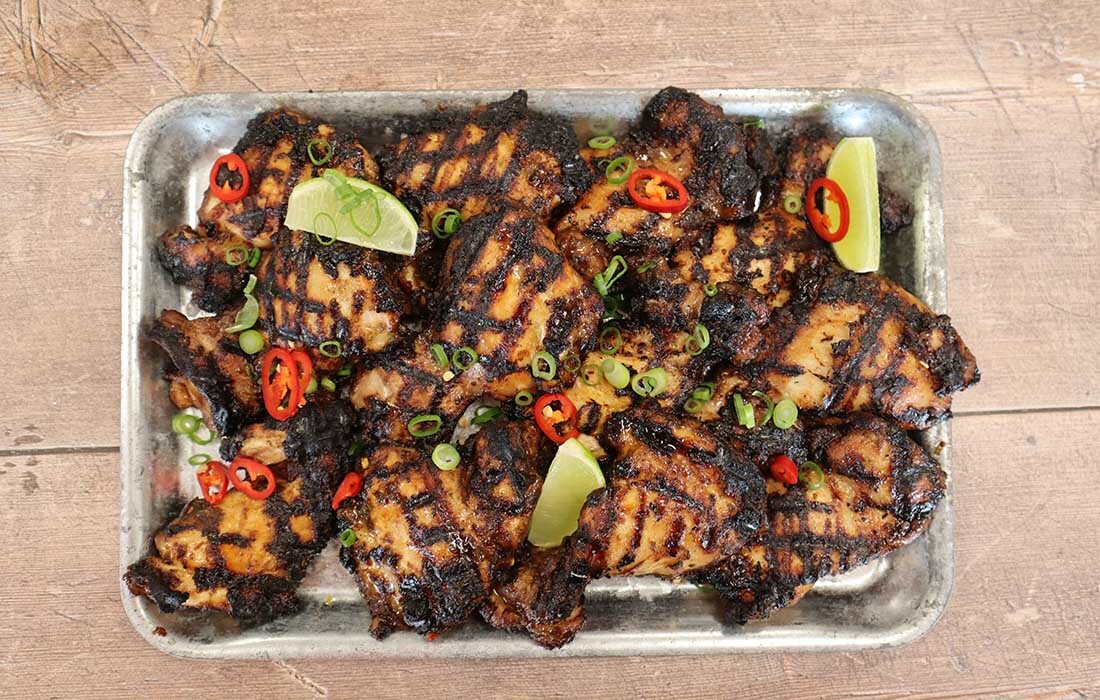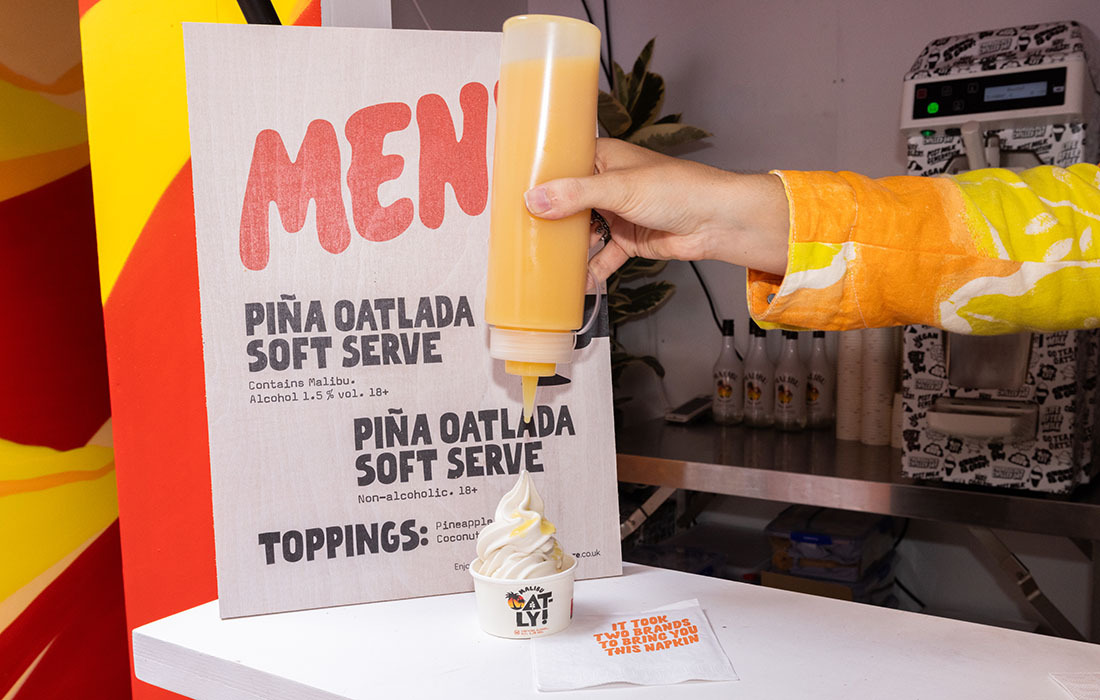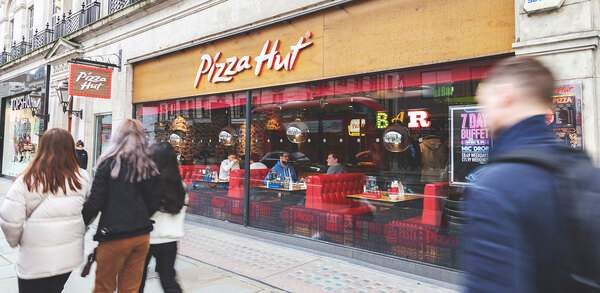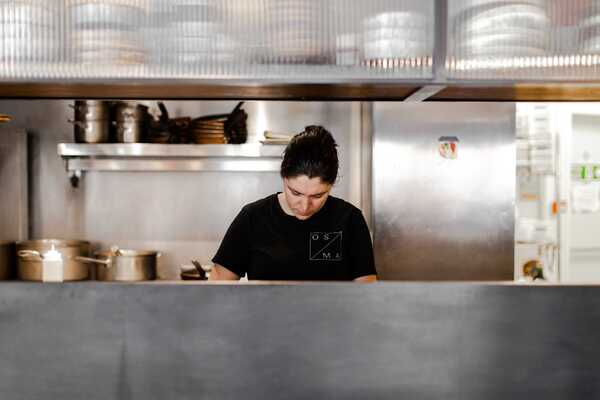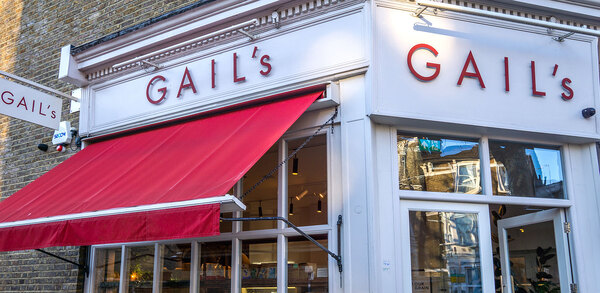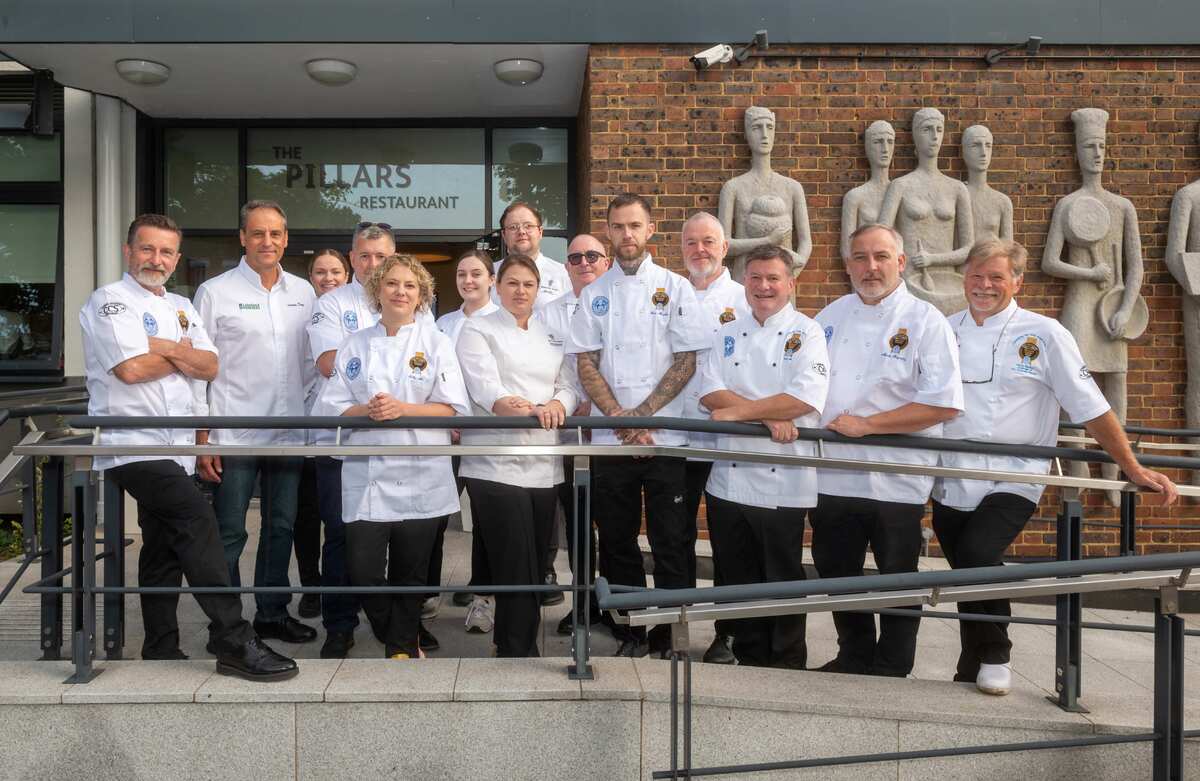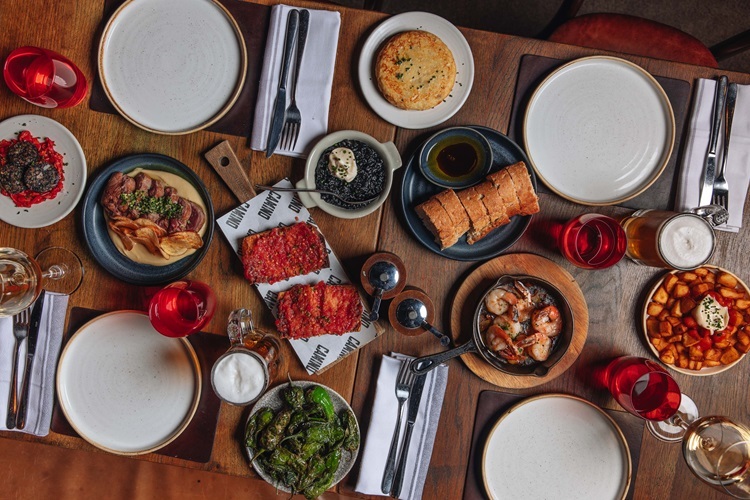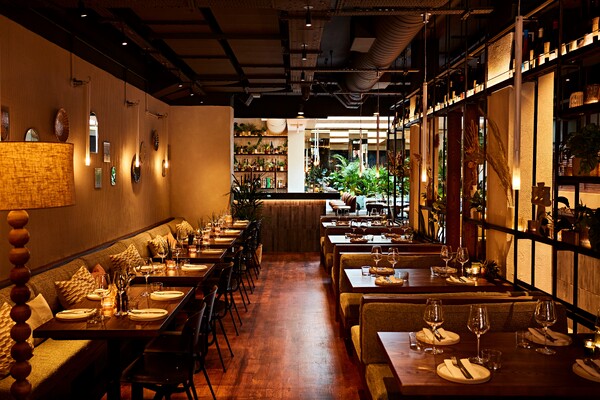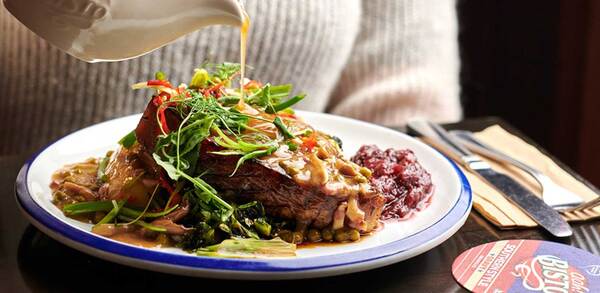How to create paradise on a plate with Caribbean food
Caribbean cuisine is enjoying a period in the sun, so how can operators make the most of serving this fragrant and flavourful fare?
New Caribbean chefs on the block are now looking at the cuisine from a fine dining perspective, according to Julian George, the founder of African and Caribbean chef collective, the Future Plate, which recently found a permanent home in Somerset House, London.
“They are classically trained and are applying those skillsets to Caribbean cuisine to really put it on the map,” he says. “The current scene is definitely a lot better than a few years ago.”
But while many may typically think of Jamaican fare as representing the entire region, George was keen to emphasise that many other Caribbean countries’ dishes are contributing to this elevation journey. “The perception of what the cuisine is, isn’t necessarily its true authentic representation,” he said, citing chef Kerth Gumbs’ work at the Sky Garden in London as promoting Anguillan food, while Jason Howard is bringing Bajan cuisine to the fore in his recent Modern Caribbean Cuisine cookbook.
George points to escovitch fish and other traditional fish dishes as key to anchoring a Caribbean menu, underlining that trying alternative uses for staples like plantain, such as making it a main dish for a vegan option rather than just a side, can open up new creative avenues too. He feels other key ingredients are sweet potato, okra, yam, eddo, scotch bonnet chilli and callaloo.
Caribbean demand in the UK
Those looking to launch a Caribbean offering are essentially pushing at an open door of diner demand when it comes to heeding the clamours for the region’s flavour though, with 22% of consumers already eating the cuisine and a further 44% interested in trying it, according to Bidfood and CGA by NielsenIQ Trends’ 2024 bespoke consumer survey.
Bidfood’s senior research and insights executive Rhia Harry points out: “Known for its bold flavours, Caribbean food is made up of fresh fish and seafood, comforting curries and tropical fruit and vegetables, all uplifted with the ingenious use of spices. The Caribbean itself is made up of 13 different islands, and this is reflected in the various cooking methods, from slow-cooking to stewing and barbecuing.”
While popular dishes such as jerk chicken seem to be ubiquitous, there’s also opportunity to slot in more authentic menu items such as goat curry or oxtail stew. Harry advises: “If you’re looking to be more sustainable with your menus, you can use lesser-known and even leftover cuts in your stews. Simply cook it low and slow and even the toughest of cuts will becomes tender and succulent.”
Jerk as the hero flavour
Jerk remains as the seasoning of choice, with the combination of herbs and spices tending to feature a base of allspice, thyme, onion and garlic alongside spices like cinnamon, cumin and nutmeg, as well as scotch bonnet.
Creed Foodservice is capitalising on this popularity with a new jerk line as part of its Kitchen ’72 Marinated Meats range. Prepared by Creed’s in-house butchery, the meats comprise marinated Red Tractor and RSPCA assured chicken and pork products.
The wholesaler’s development chef Joseph Oliver suggests jerk chicken buddha or poke bowls, jerk pork belly tacos and jerk hot honey wings as recipes where “the marinade’s strength of flavour can shine through”.
Oliver adds: “Jerk-based dishes work well with sweeter sauces and accompaniments. For the winter months, warm grain salads featuring squashes and roasted seasonal vegetables paired with roasted jerk pork or chicken work well. Salsas featuring ingredients like pineapple and lime also pair beautifully with jerk marinated meats, with fruity acidy cutting through the rich flavours and fattier cuts of meat.”
Or for a more convenient way to add jerk to the menu, Funnybones Foodservice’s Irie Eats meals come fully prepared in packs of 2.5kg – approximately 10 portions – with four styles comprising Callaloo Stew, Rice ‘n’ Peas, Curried Mutton and Jerk Chicken.
Fusing Caribbean flavours
An alternative option to weaving more exotic tastes into dishes is to shake up an existing recipe. For instance, Kath Davies, new product development manager at EHL Ingredients’ seasonings and blends brand Lähde, reports: “We’re seeing an explosion of multi-ethnic and fusion foods, combining Caribbean with other world cuisines – think jerk chicken tacos, wraps and pizzas, Jamaican burgers, pasties and patties, Jamaican goat or lamb curries with African jollof rice, Caribbean spiced scotch eggs, and the new sensation – rasta pasta.”
Meanwhile Bidfood’s Harry suggests: “You can add a Caribbean twist to the items already on your menu with the simple addition of a spicy mango salsa, Trinidadian chutney or jerk mayonnaise. They’re a great way to bring a layer of new, exciting flavours.”
She further underlines that similar tactics can be employed for grab-and-go and lunch-style dishes: “Transform your humble chicken burger into a jerk chicken burger and give the option to swap out regular chips with sweet potato fries or slices of fried plantain – the combination of sweet, hot and spicy flavours is a marriage made in heaven.”
Sunshine sweets
Moving onto the purely sweet side of things, Harry believes that tropical fruits can create premium desserts for venues. “Coconut, banana and mango work well in desserts or in sweet treats. How does a plate of banana and rum fritters sound? With a light dusting of icing sugar and a large scoop of coconut ice-cream, it’s a flavour carnival your consumers won’t want to miss,” she says.
“Caribbean desserts also incorporate spices such as allspice, cinnamon, ginger and nutmeg and feature in Jamaican rum cake, hummingbird cake and black fruit cake. You can shake things up with these spices in familiar desserts like brownies and cheesecakes by including a chocolate ginger sauce to drizzle over them.”
Ice-cream specialist Carpigiani recently demonstrated proof of a Caribbean sweet concept, teaming up with dairy alternative brand Oatly and Pernod Ricard’s Malibu rum at the Paradise Arches pop up in London’s Shoreditch. The companies collectively created the Piña Oatlada plant-based soft serve.
Joe Yates, development chef at Carpigiani UK, says: “This collab celebrated flavours of the Caribbean, bringing them to life in such a fun yet impactful way. The pineapple sauce and coconut flake toppings really elevated the tropical flavours of this treat.”
All of this innovation looks positive for the future of Caribbean cuisine in the UK, and the Future Plate’s George believes this will be key for anyone wanting to bring an authentic offer to the market: “You will have to be innovative in terms of how it’s presented. There’s certainly a gap in the middle and high end but you have to have a vision and understand you’ll have your work cut out.
“The passion has to come from the heart, and I think there are individuals out there who are more than capable. It’s a challenge but certainly worth it and if you get it right it will be amazing.”
Suppliers
- Bidfood www.bidfood.co.uk
- Carpigiani www.carpigiani.co.uk
- Creed Foodservice www.creedfoodservice.co.uk
- EHL Ingredients www.ehl-ingredients.co.uk
- Funnybones Foodservice www.funnybones.co.uk
- Malibu www.malibudrinks.com
- Oatly www.oatly.com



